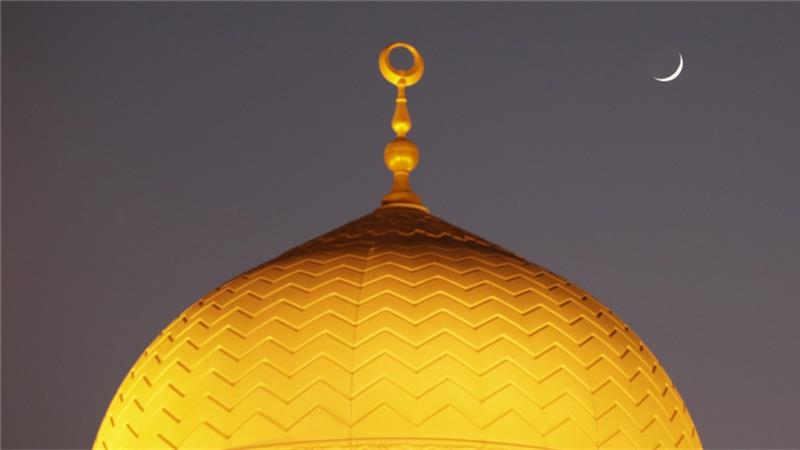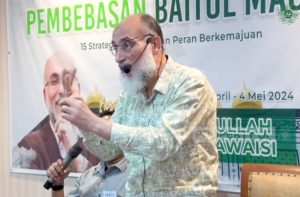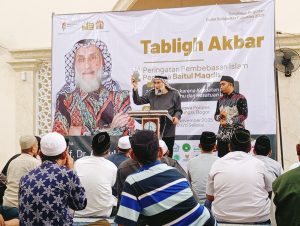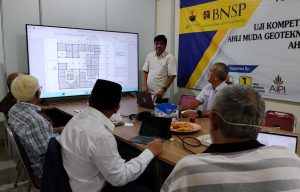By: Ali Farkhan Tsani, Senior Editor of MINA News Agency
Among the greetings or prayers when meeting on Eid Al-Fitr, or through short messages on social media, is the sentence “Taqabbalallahu minna waminkum.” This means that may Allah accept our deeds and your deeds.
Then we also answer with the same words, or with the phrase “Taqobbal yaa kariim,” (Give it O Supreme Being), or “Waiyyaakum”. (And hopefully for you too).
Syaikhul Islam Ibnu Taimiyah in the Book of Majmu Al-Fatawa, mentions that it is among the sayings delivered by fellow companions of the Prophet during the time of Rasulullah Shallallahu ‘Alaihi Wasallam.
Also Read: Verses of the Universe in Gaza: The Unyielding Light of Faith
According to another history, there are also friends who add “Shiyamana wa Shiyamakum”, which means may Allah accept our fast and your fast.
Jubair bin Nufair narrated, “The companions of the Prophet Shallallahu ‘Alaihi Wasallam when they met in Eid Al Fitr, then said some of them to others: “Taqabbalallahu minnaa wa minka.”
Al-Hafidz Ibn Hajar Al-Asqalani mentions it in the Book of Fathul Bari, with Hasan Isnad.
Muhammad bin Ziyad also said, “I was with Abu Umamah Al-Bahili and other than among the companions of the Prophet Shallallahu ‘Alaihi Wasallam. When they return from the Eid prayer, some of them say to others: Taqabbalallahu minnaa wa minka.” (History of Ibn Qudamah in the Book of Al-Mughni).
Also Read: Prophet Sulaiman Alaihi Salam, the Greatest Muslim King of All Time
In another history it is said, from Khalid bin Ma’dan, he said, “I met Watsilah bin Asqa ‘on the feast day. I told him: “Taqabbalallahu minna wa minka”.
Ali bin Thabit said, “I asked Malik bin Anas about the words of Taqabbalallahu minna waminka”. He replied, “This saying has always been traditional in Medina.”
Imam Ahmad added, “I never started congratulating anyone. But if someone who preceded me said it to me, then I would answer it. That is because answering congratulations is not a sunnah that is ordered and is not prohibited. Whoever does it, for him there is an example and whoever leaves it for him there is also an example. Wallahu a’lam.”
So wishing you a Happy Eid Al-Fitr, Minal ‘Aidin wal Faizin, Sorry to be Born and Inner, Forgive me, Pangapurane, Sami-Sami, etc., was not exemplified by Rasulullah Shallallahu ‘Alaihi Wasallam. Especially Indonesian or regional language. Because the Prophet did not use Indonesian, let alone regional languages, such as Javanese.
Also Read: Imaam Yakhsyallah Mansur: Surah At-Tin Indicates the Command to Liberate Al-Aqsa
But saying congratulations in any language to pray for one another, is something good and not forbidden. This need not be questioned let alone contested.
Just like the millennial generation when they meet, they say “I’m sorry, okay?” There are also those who say, “Empty huh.” The meaning contained in it is to forgive each other.
Just like saying, “Congratulations, you are going to class” or “Happy new life”, and so on. There are also, “Happy graduation,” or “Success, yes, accepted at State Universities,” or simply, “Blessed be, success, Bro!”.
In fact, in the words of the Arabs today, many hear the words “Ied Mubarak” (Id day full of blessings) or “Kullu ‘aam wa antum bikhair” (Hopefully all year round you are in good condition).
Also Read: Imaam Yakhsyallah: Nurture Love for the Prophet, One Will Be with Whom One Loves
These sayings are customary, which mean good and do not violate the Shari’a. That is the diversity of languages as a gift from God. (T/RE1)
Mi’raj News Agency (MINA)
Also Read: Friday Sermon: Emulating the Firmness of the Prophet in Struggle




































 Mina Indonesia
Mina Indonesia Mina Arabic
Mina Arabic